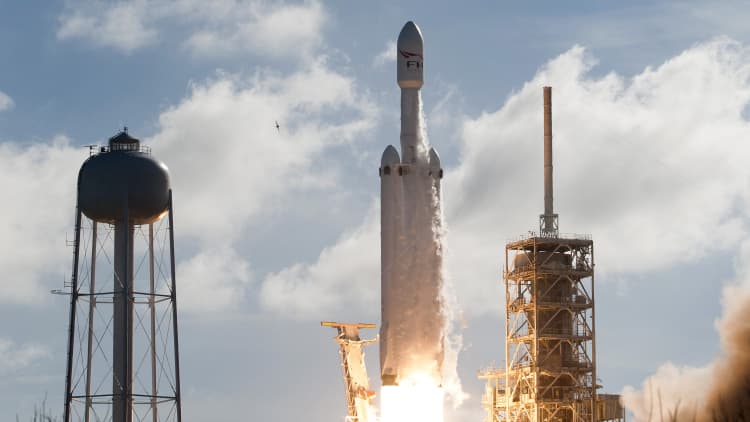ADELAIDE, Australia — As technology becomes more widely available and less expensive more private companies are getting into space than ever before.
At the International Astronautical Congress, in Adelaide, Australia, that booming industry was readily apparent. The event, the world's largest space conference, brought together astronauts, governments, private companies and researchers.
Elon Musk was in attendance, and he used the event to outline his plans to have humans visit Mars by 2024. Science expert and television star Bill Nye was also at the event.
"NASA is the best brand the United States has," Nye, CEO of The Planetary Society, a nonprofit organization that promotes space research, told CNBC. "People have mixed feelings about the United States, putting it carefully. But, however they feel about the U.S. they respect NASA."
Yet NASA's presence was less evident at the event — the biggest conference stand outs included corporations like Boeing, Airbus and Lockheed Martin and national space agencies from the likes of France, Germany, Korea and the U.A.E.
Since the 1960s, NASA's budget as a percentage of the federal budget has shrunk markedly, according to the space agency.
Earlier this year, President Donald Trump has proposed slight budget cuts for NASA.
"Private companies are becoming more prevalent in space research, technology, and travel, because the sector is becoming more accessible," said Flavia Tata Nardini, co-founder and CEO of Fleet, an Australian start-up that aims to boost the global "Internet of Things" with a constellation of small-scale satellites.
"As technology develops, so to do the new applications and devices we can create at a fraction of the cost of previous investments," she said. "This has opened the door to start-ups and space enthusiasts who want to explore the sector without government backing."
While the privatization of the space sector excites science expert Nye, he emphasized that space research is very different than space travel.
"Nobody's going to make money mapping Saturn," he said. But when it comes to off-Earth travel, things may be different: "People think there's a business case that you would sell tickets to Mars. That's an extraordinary idea."
He pointed to Richard Branson's Virgin Galactic, Jeff Bezos's Blue Origin and Musk's SpaceX as companies that excited him.
"SpaceX is changing the game," he said. "Everybody else who builds rockets is being nudged by SpaceX's accomplishments."
Still, going into space is hugely costly. So why do it?
"If we found evidence of life, everyone would feel differently," Nye said. "It would change the world."



